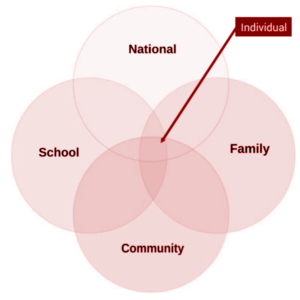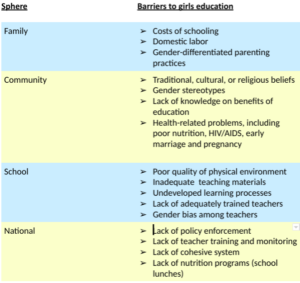Africa ELI staff were greatly concerned when they heard that one of the senior girls would not be returning to Yei for her final term of high school. She was a well-performing student. She routinely participated in co-curricular activities, and had many friends on campus. It was disappointing to learn that her father had negotiated a bride price with a suitor who was prepared to immediately make her his wife. Without urgent intervention, it was likely our Africa ELI student would not realize her goal of high school graduation.
Fortunately, this situation was quickly addressed by Africa ELI personnel and the outcome was positive. Staff, along with a local member of her home region, traveled to meet with the student, her father, and the intended bridegroom. After much conversation, the father consented to delay the marriage and allow his daughter to complete her final term.
Early marriage is but one of the barriers facing girls in South Sudan. In order for Africa ELI to achieve our mission, we must have an understanding of the barriers they face, as well as the causes of those barriers. It is not enough to just respond to obstacles as they arise — we must be able to able to anticipate them and have a strategy for either alleviating or overcoming them.
Barriers are present in four different spheres of society: family, school, community, and national. Though these spheres are separate and distinct, they all all interact with and influence one another. The individual is at the intersection of all four.
Barriers Present in Each Sphere
In an upcoming series of blog posts, we will revisit each of these spheres separately. We will look at the barriers that exist within each and explore their causes. We will share the interventions that Africa ELI uses to overcome the barriers, as well as suggest additional interventions that could be applied with the cooperation of families, communities, schools, and government.


